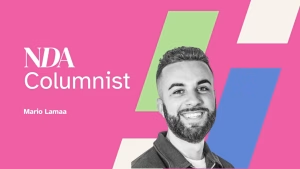It’s been quite a 12 months for publishers, with the fall-out of a pandemic, together with huge shifts in browser strategies. Yet, these changes may well shape a more confident industry that delivers for advertisers and readers alike.
This is the prevailing view of an expert panel brought together by New Digital Age and hosted by editor Justin Pearse to discuss the industry’s future.
· Alex Kirby, Global Head of Programmatic and Commercial Data, Dennis
· Jemima Villaneuva, Executive Director, EMEA, The Atlantic
· Charlotte Taylor, Head of Publishing & Audio, Spark Foundry
· Jane Brady, Head of Brand Partnerships, Mumsnet
· Tim Cronin, VP Sales, AAX
· Steve Filler, UK Country Manager, ShowHeroes Group
· Tanya Field, Co-founder and CPO, Novatiq
· Dom Perkins, Digital Advertising Strategy Director, Immediate Media
For Dom Perkins, Digital Advertising Strategy Director at Immediate Media, this is the year that publishers will emerge as an advertising force in their own right. “There is a real opportunity to define our own roadmap and to stop sitting in the shadows.”
He believes that the industry has perhaps “been slow” in the past and now is the time to “take the lead and finally start to stand up”.
Tanya Field, Co-founder and CPO, Novatiq, concurs. She talks about the “re-emergence of the might of the publishers”. “We’re going to see a transference back to first party data and first party audiences. And we believe this is the time when publishers will be able to reassert their might on the industry as a whole.”
As Tim Cronin, AAX VP Sales, says – the publishing world is moving from an “over dependence on cookies to where we are now”. He points also to an over dependence on user targeting in the past: “That has really hurt premium publishers such as The Atlantic, Forbes and others.” By premium, he adds, he means those publishers who invest in quality, original content.
Charlotte Taylor, Head of Publishing & Audio of Spark Foundry says. “2020 was a brilliant year for growth and what publishers have done really well is move to where their audiences have shifted. They have had to accelerate at a rapid pace and now, because publishers are brands, they are multi-platform. The biggest opportunity for us as an agency is how we can tap into all these platforms.”
For Steve Filler, UK Country Manager of ShowHeroes Group, video is unsurprisingly a big opportunity for publishers to expand their remit and for advertisers to invest in. He believes that technology provided by companies such as his help assuage concerns such as scale, context and brand safety.
“With the increased importance of context, video is a really nice sweet spot for publishers,” he adds.
Jane Brady, Head of Brand Partnerships at Mumsnet, has a slightly different take. The previous year has been difficult for the platform’s community with the burden of Covid-19 having a disproportionate negative impact on women, something they are seeing play out. This, though, may bring opportunity and she adds: “We are quite different to a lot of other publishers. For us the opportunity is to focus on being a source of reality and truth and that will lead a lot of thinking of how we approach partnerships in 2021 and beyond.”
For Dennis Publishing, the last year has also been one to take stock and build for the future. Says Alex Kirby, Global Head of Programmatic and Commercial Data: “We’re [all] in a massive state of flux. We knew the demise of the third party cookie was coming, but we didn’t know we were going to have a pandemic.
“The impact of that has, between last year and this year, been an opportunity to look at our models, our products and invest in revenue diversification.”
Change, too, came for The Atlantic magazine, according to its EMEA Executive Director Jemima Villaneuva. “There are exciting new frontiers that we’re looking at in 2021,” she says, adding that the publication was unlikely to go back to “100% real life events ever again and more likely to find a way to combine real life and digital attendance”.
This year nothing, it seems, will be the same again for an industry capitalising on change.










